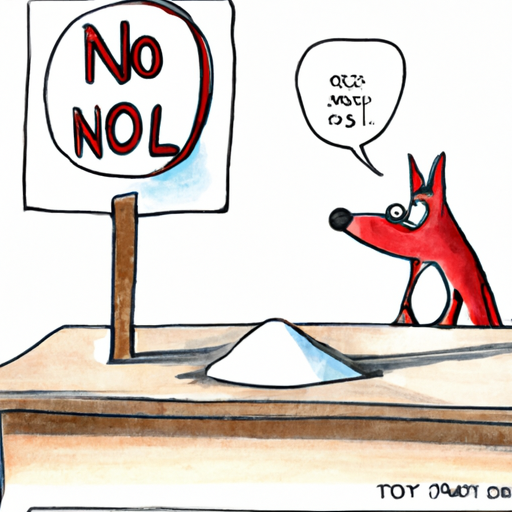1. Introduction
You might have seen your dog sniff with curiosity at the salt shaker on your kitchen table. Or maybe you’ve wondered if a little pinch of salt might make your dog’s food more appealing. But before you reach for that salt shaker, it’s important to understand how salt affects your beloved pet.
2. The Science Behind Salt and Dogs
Let’s delve into the science of sodium, shall we? Like humans, dogs need a certain amount of salt in their diet to help maintain healthy cells and nerve function. But, too much salt can lead to a number of health issues.
- Dehydration: Salt dehydrates dogs by drawing water out of their cells. This can lead to excessive thirst, urination and even kidney damage.
- High Blood Pressure: A diet high in salt can increase blood pressure, putting stress on your dog’s heart and potentially leading to heart disease or stroke.
- Salt Poisoning: In extreme cases, a large amount of salt can lead to salt poisoning, which can cause seizures, coma, and even death.
| Potential Health Effects | Cause |
|---|---|
| Dehydration | Draws water out from cells |
| High Blood Pressure | Increases blood pressure |
| Salt Poisoning | Extreme salt intake |
3. Common Sources of Salt in Dog’s Diet
You’d be surprised where salt can lurk in your dog’s diet. Here are a few common sources:
- Commercial dog food: While quality dog food should have a balanced amount of sodium, cheaper brands may add excess salt to enhance flavor.
- Human food: Foods we consume daily, like bread, processed meats, cheese, and snacks, are often high in salt and should be avoided.
- Saltwater: Dogs who love to swim in the ocean can accidentally ingest saltwater, which can lead to salt poisoning.
4. How to Limit Your Dog’s Salt Intake
So, how can you ensure your dog is getting just the right amount of salt? Here are some tips:
- Choose a high-quality dog food with a balanced amount of sodium.
- Limit treats and avoid giving your dog human food, especially those high in salt.
- Provide fresh water at all times to help flush out any excess sodium.
- Monitor your dog’s behavior after trips to the beach to watch for signs of saltwater ingestion.
5. Frequently Asked Questions (FAQ)
Q: Can I give my dog salt in small amounts?
A: A small amount of salt is necessary for your dog’s health, but it should be balanced and not excessive.
Q: How much salt is too much for a dog?
A: This can vary based on the size and breed of your dog. Consult with your vet for specific dietary recommendations.
Q: Can I use salt to induce vomiting in my dog?
A: No, inducing vomiting with salt can lead to salt poisoning. If your dog has ingested something harmful, contact your vet immediately.
In conclusion, while salt is essential for your dog’s health, too much can lead to serious health problems. By being aware of the salt content in your dog’s diet and taking steps to limit it, you can help ensure your furry friend lives a long, healthy life.



